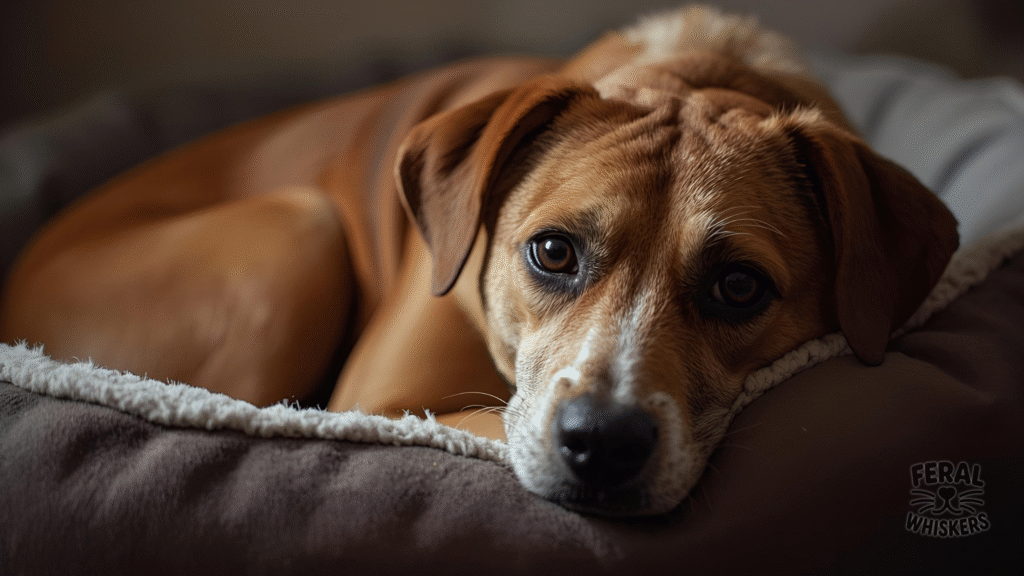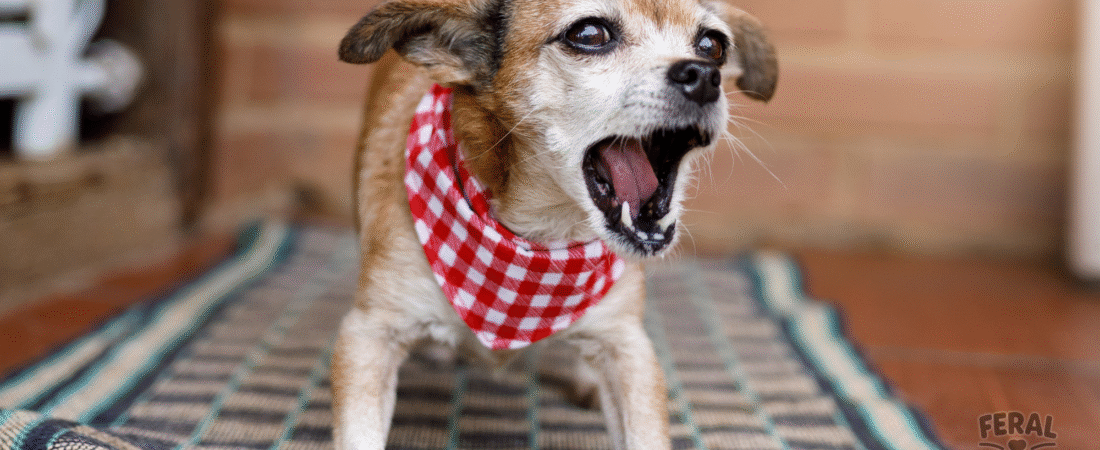Why Kennel Cough Matters

Kennel cough is one of the most common and contagious respiratory illnesses in dogs. The medical name is canine infectious tracheobronchitis, but most pet parents know it as “kennel cough” because it spreads easily where dogs gather — kennels, dog parks, pet stores, daycare, and grooming salons.
While it is usually not life‑threatening for healthy adult dogs, it can be very dangerous for puppies, senior dogs, or those with weak immune systems. And because it’s so contagious, one coughing dog can quickly spread infection to dozens of others.
How Kennel Cough Spreads
Kennel cough is spread in similar ways to the human flu or cold:
- Airborne droplets released when a dog coughs or barks.
- Direct contact such as sniffing or playing.
- Shared objects like water bowls, toys, or bedding.
It can spread in any crowded place with poor ventilation.
Symptoms to Watch For
The most recognizable sign is a loud, dry, “honking” cough, sometimes compared to a goose honk. Other symptoms may include:
- Persistent, hacking cough that seems worse at night or with excitement
- Retching or gagging at the end of coughing fits (like trying to clear the throat)
- Sneezing and runny nose
- Mild fever
- Lethargy or reduced appetite in more serious cases
Most dogs remain bright and alert with good appetite, though the cough itself can sound alarming and severe.
Diagnosis and Treatment
Veterinarians diagnose kennel cough based on symptoms and recent exposure history (like being at a kennel or park).
Treatment depends on severity:
- Mild cases usually recover on their own in 1–2 weeks with rest and supportive care.
- Vets may prescribe:
- Cough suppressants to make your dog more comfortable.
- Antibiotics if secondary bacterial infections are suspected.
- Anti‑inflammatories to ease throat irritation.
- Severely ill or high‑risk dogs (puppies, seniors, immune‑compromised) may need more intensive care.
Most dogs recover fully — but rest and monitoring are vital.
At‑Home Care for Dogs with Kennel Cough
Comfort & Recovery Checklist:
- Keep your dog isolated from other dogs until at least 1–2 weeks after coughing stops.
- Use a harness instead of a collar — collars put pressure on the throat and worsen coughing.
- Provide a calm, quiet, well‑ventilated space to rest.
- Run a humidifier or vaporizer to soothe airways.
- Offer warm, soft foods if they seem reluctant to eat dry kibble.
- Avoid smoke, sprays, perfumes, or cleaning chemicals that irritate the airways.
- Give all medicines exactly as prescribed by your vet.
Preventing Kennel Cough
The good news is kennel cough can often be prevented or reduced with a few smart steps.
- Vaccination:
- Common vaccines protect against Bordetella bacteria (a leading cause of kennel cough), canine parainfluenza virus, and adenovirus‑2.
- Vaccines are given by injection, nasal spray, or oral dose.
- While not 100% protection, vaccination can reduce severity and spread.
- Good hygiene & management:
- Avoid high‑risk places with poor air flow when outbreaks are known.
- Make sure kennel, daycare, or grooming facilities have good disinfection and ventilation.
- Quarantine sick dogs until fully recovered.
How Contagious Is Kennel Cough?
- Very contagious among dogs.
- Not typically a threat to humans, though rare cases occur in severely immunocompromised people.
- Can be spread before symptoms are obvious, which is why outbreaks in kennels spread so fast.
What Fur Parents Can Expect
- For healthy, vaccinated dogs, kennel cough usually lasts 1–3 weeks.
- Puppies, older dogs, or those with compromised immune systems may be sick longer, and more severely.
- Complications like pneumonia are rare but possible, so always monitor for worsening symptoms such as:
- Severe lethargy
- High fever
- Loss of appetite
- Trouble breathing or very deep, wet coughs
If these occur — see your vet right away.
Fun Facts
- Kennel cough is similar to a chest cold in humans but tailored to dog respiratory systems.
- Dogs can catch kennel cough even just walking past an infected dog on the street, if close enough.
- Some dogs cough so dramatically that pet parents think something is stuck in their throat!
Common Questions
Can dogs die from kennel cough?
Rarely, unless they are very young, old, or sick. Most healthy dogs recover with rest.
Does my dog still need the Bordetella vaccine if we don’t use kennels?
Yes — outbreaks can occur anywhere dogs gather, including groomers, training classes, and dog parks.
How do I know when my dog isn’t contagious anymore?
Usually 1–2 weeks after coughing has stopped, but ask your vet, as it can vary.
Can kennel cough come back?
Yes. Immunity isn’t permanent — dogs can be re‑infected if exposed again.
Final Takeaway
Kennel cough can sound scary, but for most healthy dogs, it’s more of an uncomfortable “doggy cold” than a deadly illness. Still, because it’s highly contagious, every dog parent should take it seriously by isolating sick pets and keeping vaccinations up to date.
With simple care, rest, and vet guidance, most dogs bounce back quickly. And with prevention, you can reduce the risk of your pup ever catching it.

